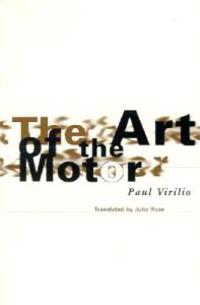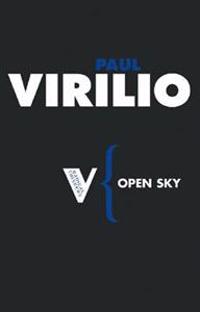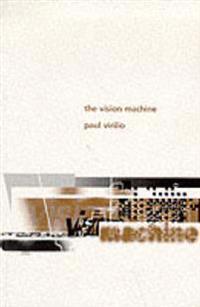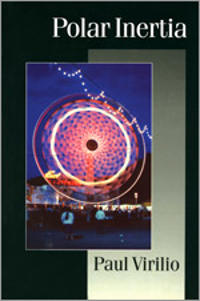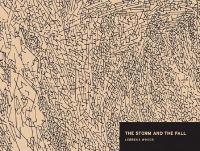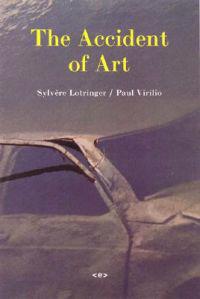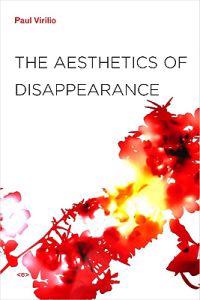The Virilio Reader (Häftad)
avPaul Virilio, Derian Der Derian, James Der Derian
ISBN: 9781557866530 - UTGIVEN: 199810Over a diverse career as a professor of architecture, urbanist, film critic, military historian, and peace strategist, Paul Virilio has produced over a dozen influential books that chart new territory on the impact of new technologies on society, war and the media, the virtualization of internationa[...]
The Art of the Motor (Pocket)
avPaul Virilio, Julie (TRN) Rose, Paul Virilio
ISBN: 9780816625710 - UTGIVEN: 1995-10Open Sky (Pocket)
avPaul Virilio, Julie (TRN) Rose, Paul Virilio
ISBN: 9781844672080 - UTGIVEN: 2008-01A critique of information technology and the global media.
The Vision Machine (Häftad)
avPaul Virillio, Paul Virilio
ISBN: 9780253209016 - UTGIVEN: 1994-08"Virilio offers a cool, precise look at an impending future in which reality shall simply cease to exist. Highly recommended." ChoiceSurveying art history as well as the technologies of war and urban planning, one of France s leading intellectuals provides an introduction to a new "logistics of the [...]
The Paul Virilio Reader (Häftad)
ISBN: 9780231134835 - UTGIVEN: 2004-09If nothing else, the war in Iraq and the 1991 Gulf War have taught us much about media and technology as key players in how war is waged, packaged for public consumption, and exported in real time to the rest of the globe. A critic of the art of technology, Paul Virilio has keenly observed that medi[...]
Landscape of Events, A (Övrig)
avPaul Virilio
ISBN: 9780262720342 - UTGIVEN: 2001-01-29introduction by Bernard Tschumi In A Landscape of Events, the celebrated French architect, urban planner, and philosopher Paul Virilio focuses on the cultural chaos of the 1980s and 1990s. It was a time, he writes, that reflected the "cruelty of an epoch, the hills and dales of daily life, the usual[...]
Paul Virilio (Pocket)
avIan James
ISBN: 9780415359641 - UTGIVEN: 2007-07-25Paul Virilio is a challenging and original thinker whose work on technology, state power and war is becoming increasingly relevant. Exploring Virilio's main texts from their political and historical contexts, the author introduces the key themes in Virlio's work, including: speed; virtualization; wa[...]
University of Disaster (Häftad)
avPaul Virilio
ISBN: 9780745645056 - UTGIVEN: 2009-10-31'The world of the future will be a tighter and tighter struggle against the limits of our intelligence', announced Norbert Wiener. On top of such confinement, we are faced not only with the greenhouse effect of global warming but also that of incarceration within the tighter and tighter limits of an[...]
The Futurism of the Instant: Stop-Eject (Häftad)
avPaul Virilio
ISBN: 9780745648644 - UTGIVEN: 2010-11-30The Great Accelerator (Häftad)
avPaul Virilio
ISBN: 9780745653891 - UTGIVEN: 2012-05-31* An important new book by the world's leading theorist of technology, speed and power.
The Paul Virilio Reader (Inbunden)
ISBN: 9780748620029 - UTGIVEN: 2004-08A critic of the art of technology, Paul Virilio has taught us that much media image is a strategy of war and that accident is becoming indistinguishable from attack. In these times of fierce conflict over which kind of capitalism is to take over the shrinking globe, and indeed which modernities we w[...]
Polar Inertia (Pocket)
avPaul Virilio
ISBN: 9780761958031 - UTGIVEN: 1999-12Examining how the 'here and now' of space, territory, the body, are being redefined by new technologies and how this undoes simplistic versions of the globalization thesis, Paul Virilio demonstrates how technology has made inertia the defining condition of modernity. An instantaneous present has rep[...]
Art and Fear (Häftad)
avPaul Virilio
ISBN: 9780826487964 - UTGIVEN: 200603Paul Virilio is one of contemporary Continental thought's most original and provocative critical voices. His vision of the impact of modern technology on the contemporary global condition is powerful and disturbing, ranging over art, science, politics and warfare. In Art and Fear, Paul Virilio trac[...]
Bunker Archaeology (Häftad)
avPaul Virilio
ISBN: 9781568980157 - UTGIVEN: 199804Out of print for almost a decade, we are thrilled to bring back one of our most requested hard-to-find titlesphilosopher and cultural theorist Paul Virilio's Bunker Archeology. In 1994 we published the first English-language translation of the classic French edition of 1975, which accompanied an exh[...]
The Storm and the Fall (Inbunden)
avLebbeus Woods, Anthony Vidler, Paul Virilio
ISBN: 9781568984216 - UTGIVEN: 200402By any measure, Lebbeus Woods is one of the most original architects working today. His body of theoretical work focuses on buildings of crisis, whether marred by major earthquakes, suffering the effects of economic embargo, or damaged by war. Since the destruction of the World Trade Center, his des[...]
Crepuscular Dawn (Övrig)
avPaul Virilio, Sylvere Lotringer
ISBN: 9781584350132 - UTGIVEN: 2002-12-03The accident is a new form of warfare. It is replacing revolution and war. Sarajevo triggered the First World War. New York is what Sarajevo was. September 11th opened Pandora's box. The first war of globalization will be the global accident, the total accident, including the accident of science. An[...]
The Accident of Art (Häftad)
avSylvere Lotringer, Paul Virilio
ISBN: 9781584350200 - UTGIVEN: 200509There is a catastrophe within contemporary art. What I call the "optically correct" is at stake. The vision machine and the motor have triggered it, but the visual arts haven't learned from it. Instead, they've masked this failure with commercial success. This "accident" is provoking a reversal of v[...]
Speed and Politics (Häftad)
avPaul Virilio
ISBN: 9781584350408 - UTGIVEN: 200612Speed and Politics (first published in France in 1977) is the matrix of Virilio's entire work. Building on the works of Morand, Marinetti, and McLuhan, Virilio presents a vision more radically political than that of any of his French contemporaries: speed as the engine of destruction. Speed and Poli[...]
Pure War (Häftad)
avPaul Virilio, Sylvere Lotringer
ISBN: 9781584350590 - UTGIVEN: 200806In June 2007, Paul Virilio and Sylvere Lotringer met in La Rochelle, France to reconsider the premises they developed twenty-five years before in their frighteningly prescient classic, Pure War. Pure War described the invisible war waged by technology against humanity, and the lack of any real disti[...]
The Aesthetics of Disappearance (Häftad)
avPaul Virilio
ISBN: 9781584350743 - UTGIVEN: 200905Virilio himself referred to his 1980 work The Aesthetics of Disappearance as a "juncture" in his thinking, one at which he brought his focus onto the logistics of perception -- a logistics he would soon come to refer to as the "vision machine." If Speed and Politics established Virilio as the inaugu[...]


